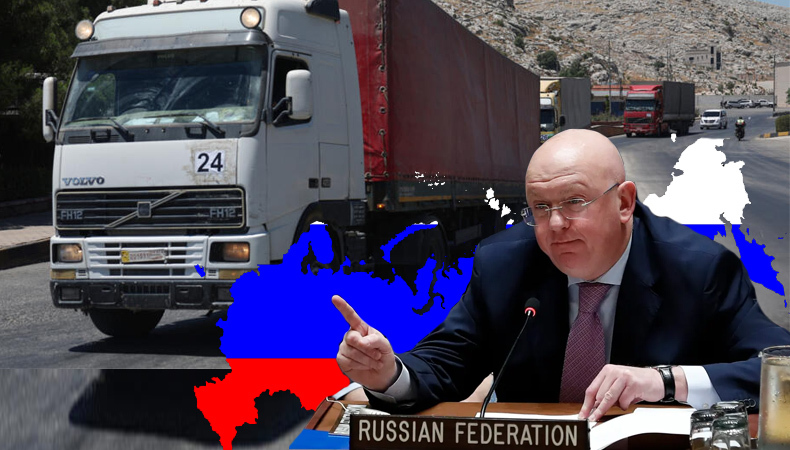Russia’s Veto at the UN Security Council Threatens Aid Flow to Northwest Syria

A cross-border relief operation that supplies vital aid from Turkey to millions of civilians in northwest Syria has once again been hampered by Russia’s latest veto at the United Nations Security Council (UNSC). In addition to endangering the well-being of Syrians, Russia’s action could have far-reaching repercussions for Turkey and the fragile Turkish-Russian partnership in Syria. The impact of Russia’s veto goes beyond humanitarian considerations and underscores the complicated interactions between Moscow and Ankara and their conflicting geopolitical interests, even though the international community is still divided on the Syrian crisis.
Also Read – No Compromise: Russia’s Veto Blocks Humanitarian Aid to Millions in Syria
Russia’s Veto and its Implications
Except for China, all permanent members of the UNSC have condemned Russia for using its veto power to obstruct the proposed extension of the cross-border aid operation. This action not only jeopardises the livelihoods of Syrians but casts doubt on the viability of the two additional Turkish border crossings established to aid in the aftermath of the earthquake in Turkey and Syria. The veto’s repercussions extend beyond the humanitarian sector and affect Turkish-Russian cooperation in Syria.
Russian-Turkish Relations and Syrian Cooperation
Russia’s continued veto use and support for the Assad regime show the country’s strategic ties to Syria. However, this alignment is influenced by Turkish-Russian ties in Syria and is not purely for geopolitical reasons. The Astana peace process has permitted Turkey to pursue military operations in northern Syria with Russia’s support, despite Ankara and Moscow having different perspectives on the Syrian war.
The Cross-Border Aid Mandate
Initially established in 2014, the UN mission provided access to humanitarian aid through four border crossings. But since 2020, Russia has routinely exercised its veto authority to restrict the mandate to a single Turkish border crossing, forcing a six-month renewal. The most recent veto raises questions concerning Russia’s politicisation of humanitarian aid and its pursuit of political objectives, especially its position in Ukraine. The timing of the veto, just after a head of a Russian mercenary squad attempted to mutiny, highlights the intricacy of Moscow’s military leadership and Putin’s power in Syria.
Turkey’s Stance and Calls for UNSC Reform
Turkey, a significant participant in the relief operation, has remained silent on Russia’s veto. President Recep Tayyip Erdogan has repeatedly criticised the permanent members’ veto power and asked for the UNSC to be reformed, highlighting the necessity to address global challenges outside the purview of a few vital countries. Turkey has emphasised the need to find common ground among UNSC members to break the current deadlock. Turkey has highlighted worries about great power competition and exploiting third nations’ difficulties.
The Way Forward
There is still hope that the UNSC members may come to an agreement to resolve the impasse around the humanitarian operation. Turkey, which seeks to retain friendly relations with both Moscow and the West despite the Ukrainian crisis, would welcome a good step by Russia to support the relief mission. The aid problem is vital in the delicate balance of cooperation between Turkey and Russia in Syria. Turkish-Russian relations are likely to remain important despite recent pro-Western moves by Ankara, but the balance in their collaboration on Syria remains complex.
Also Read – Russia-GCC Ministerial Meeting Strengthens Ties Amid Global Shifts
The continuation of a vital cross-border relief operation from Turkey to northwest Syria, which affects millions of vulnerable people, is in jeopardy due to Russia’s veto at the UNSC. The veto highlights the complicated dynamics between Russia and Turkey, their conflicting geopolitical objectives, and the humanitarian aspect. The delicate Turkish-Russian cooperation in Syria hangs in the balance as the UNSC continues to be split on the issue. Turkish-Russian relations are likely to remain important despite recent geopolitical changes, but their collaboration in Syria depends on a number of issues, including how the aid issue is resolved.




